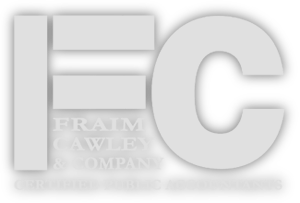“I’ve gone into hundreds of [fortune-teller’s parlors], and have been told thousands of things, but nobody ever told me I was a policewoman getting ready to arrest her.” – NYC detective
Small business owners are some of my favorite people. I talk with them every day and they can be truly inspiring. Most of them are incredibly determined, work longer hours than any employee, and just love what they do.
They can also at times be the most maddening people to work with.
One of the things that draws a lot of us to being entrepreneurs is not having to answer to a boss. We get to call the shots. We are the masters of our own destinies. It is one of the biggest perks of the job. And it can be one of the biggest pitfalls.
Eventually, we can start to develop a less than ideal, sometimes dangerous mindset: we start to view our own intuition and opinion as being actual research and planning.
And to an extent that’s understandable – you have to trust your gut. Every small business owner I know has some degree of ego…and that’s almost by necessity. You can’t run a business if you get struck with “paralysis by analysis” and second-guess every decision that has to be made.
But taken too far that mindset can have disastrous consequences.
I work with many, many business owners – and a lot of times we’re meeting when they’re starting a new business or making changes to an existing venture. In most of those meetings I will spot some potential issues, roadblocks, or even missed opportunities with the situation. Not things that can’t be fixed, but things that, if not corrected, could create real problems for the business and jeopardize its success. That’s what I’m in business to provide my clients. Most people listen and want the suggestions (they’re paying for my time, after all) and we adjust and plan accordingly.
The meetings (and thankfully there haven’t been too many of them) that I’ve found to be the most oddly fascinating were the ones when business owner just ignored everything I said– including hard calculations. I’ve had people come in with business ideas where the numbers just were not going to work. Fixed costs were going to be too high, margins too low, unrealistic sales volume necessary to be successful, etc. There would be serious issues that became obvious within the first 10 minutes of conversation, and were easily demonstrated with some quick projections.
And in these strange meetings, none of those people would listen. Why? Because they had solutions to the issues I saw? My calculations were wrong? They had some facts to disprove what I was telling them?
No, they just “felt” like it was going to be successful. They, in essence, fancied themselves a legitimate prognosticators – real-life business fortune tellers. And they were willing to trust their feelings over the cold, hard facts. Sadly, most of those businesses have barely been able to generate a profit or have failed outright. And equally sadly, had they listened to what was being noted and suggested, they might have been able to make a go of it in the business (or in some cases, at least saved themselves what they ended up losing.)
Instinct is important. And having a vision (not a “vision”!) – about your business venture’s future is actually a good thing. But this is not a substitute for true expertise in an area or hard planning and projections. None of us are experts at everything – we have no reason to be. That’s why we all need to get professionals to help us for major projects. Or even just to consult and look at things periodically with a fresh set of eyes (that also have a different perspective than ours have).
This year I’ve paid an attorney, a marketing expert, information technology people, a sales consultant, an architect, an engineer, an insurance specialist, and a slew of other people for their advice and expertise. No one likes spending money – I’m one of the cheapest people I know and hate parting with the money as much as anyone. But trying to “save” money by doing things on our own can end up resulting in some of the most expensive mistakes we ever make.
We have to trust ourselves, but also seek out and accept outside help when it’s needed. Otherwise we might be staring into a crystal ball and not noticing the handcuffs getting put over our wrists.
Any accounting, business, or tax advice contained in this communication, including attachments and enclosures, is not intended as a thorough, in-depth analysis of specific issues, nor a substitute for a formal opinion, nor is it sufficient to avoid tax-related penalties.




